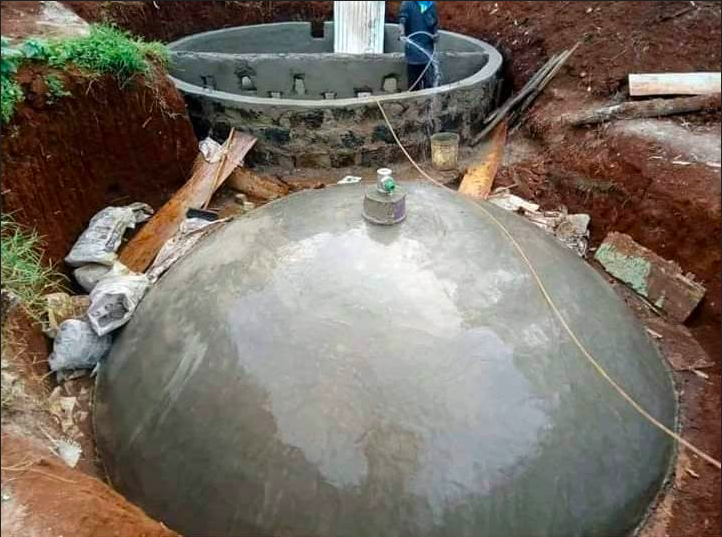
Our Biogas Project: Turning Waste into Clean Energy to Combat Air Pollution in Ugandan cities.
Introduction
Kampala, the capital of Uganda, faces a critical air pollution crisis, resulting in a mortality rate of 155.7 per 100,000 people, one of the highest on the African continent (IQAir, 2023). This alarming statistic is driven by a combination of factors, including heavy reliance on firewood and charcoal for cooking, poor waste management, and emissions from vehicles. The high levels of PM2.5 in the air, averaging 50 µg/m³—five times the World Health Organization’s safe limit of 10 µg/m³—pose serious health risks to the population. Weak regulatory enforcement and inadequate waste management infrastructure exacerbate these issues, highlighting the urgent need for innovative, community-driven solutions.
Objectives of the Biogas Project
The Clean Air Network biogas project aims to address the pressing air quality concerns in Kampala by converting 1,500 tons of organic waste generated daily into biogas. This initiative is designed not only to reduce waste but also to provide a cleaner cooking alternative for households, thereby decreasing reliance on harmful biomass fuels.
Key Goals:
Waste Conversion: Transform organic waste into biogas to mitigate environmental pollution.
Health Improvement: Promote cleaner cooking methods to reduce health risks associated with air pollution.
Community Engagement: Foster community participation in waste management and biogas production.
For Clean Air Network to ensure effective waste management, the project establish community-based waste collection hubs throughout Kampala. These hubs serve as local centers for mobilizing households to collect and sort their organic waste from recyclables, such as plastics and metals. Orginic wastes are trasported to our biodigester while recyclables are sent to specialised processors.
Implementation Steps:
Community Mobilization: Engage local communities through workshops and awareness campaigns to encourage waste sorting and participation in the biogas project.
Infrastructure Development: Set up collection points equipped with bins for organic waste and recyclables.
Partnerships: Collaborate with local leaders and organizations to facilitate community involvement and ensure sustainability.
Biogas Production and Training:
At the heart of the project is a biodigester, which is installed at the central waste collection hub to convert organic waste into biogas. This biogas can be used for cooking and other energy needs to provide a sustainable alternative to traditional biomass fuels.
Training Initiatives:
Capacity Building: Train local residents especially women and girls in biogas production techniques to empower them with valuable skills and promoting gender equality.
Operational Training: Provide education on the maintenance and operation of biodigesters to ensure the sustainability of the project.
Packaging and Distribution
Once produced, the biogas is packaged in recyclable cylinders for easy distribution to slum households. This approach not only make clean energy accessible to those who need it most but also foster local entrepreneurship.
Our Distribution Strategy:
Organized Groups: We work with community groups to facilitate the sale and distribution of biogas to slum areas to ensure affordability and accessibility.
Public Awareness Campaigns: We raise awareness about the health benefits of switching to biogas for cooking to reduce reliance on firewood and charcoal.
Collaboration and Monitoring:
For Clean Air Network to ensure the project’s success, it collaborates with local authorities to monitor air quality and assess the impact of the biogas project on air pollution levels.
Collaborative Efforts:
Air Quality Monitoring: We implement a system to regularly measure and report air quality improvements resulting from the project.
Policy Advocacy: We advocate for stricter enforcement of national air quality standards to ensure that the community’s health is prioritized in local governance.
Conclusion:
The Clean Air Network biogas project represents a proactive and innovative approach to tackling the severe air pollution crisis in Kampala. By converting organic waste into biogas and promoting cleaner cooking alternatives, the project aims to improve public health, enhance waste management, and empower local communities. Through collaborative efforts and community engagement, Clean Air Network is committed to fostering a cleaner, healthier environment for all residents of Ugandan cities.
